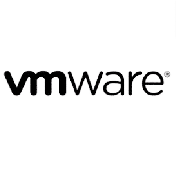Seminarinhalt
Programm
- Introduction to becoming a solution architect
- Existing product and platform skills
- Expectations of a solution architect
- Solution architect role during project phases
- Pillars of a great architecture
- Initial customer discovery
- Customer discovery meetings
- Customer communication strategy
- Introduction and overview to proposing a solution
- Identify solution components
- Develop and validate a demo
- Identify potential third-party components
- Recognize strengths and weaknesses in a solution
- Lead requirement capture sessions
- Identify functional requirements
- Identify non-functional requirements
- Confirm and finalize requirements
- Introduction to fit gap analysis
- Determine feasibility of requirements
- Refine requirements from proof of concept insights
- Categorize business requirements and perform gap fit analysis
- Evaluate Dynamics 365 and Microsoft Power Platform apps
- Project governance
- Solution architect’s role in project governance
- Techniques for keeping a project on track
- Work as a team
- Environments
- Environment data location
- Work with data
- Custom logic
- Platform limits
- High availability and disaster recovery considerations
- Common Data Model
- Data modeling
- Choose a data store
- Data modeling for Dataverse
- Best practices for Dataverse
- Exercise - Model data
- Architecture of Fabrikam data model and devices
- Report data and handle primary visitors
- Handle visitors, waivers, and photos
- Example data model solution
- Power Platform reporting capabilities
- Power BI overview
- Data requirements
- Power BI and Power Platform
- Dataflows
- AI
- Common app patterns
- App composition
- Components
- Optimize canvas apps
- Microsoft Teams and Power Apps
- Portal apps
- Check your knowledge
- Key considerations for ALM
- Solutions
- Configuration and reference data
- Release process
- ALM with Azure DevOps
- Triggers
- Common actions
- Error handling
- Best practice
- Business process flows
- Environment security
- Data loss prevention
- Access to Dataverse
- Security in apps
- Integration challenges
- Inbound data integration
- Outbound data integration
- Chatbot building options
- Chatbot concepts
- Best practices
- Integrate chatbots
- Microsoft Copilot Studio in Teams
- Power Automate for desktop
- Record and edit tasks
- Run desktop flows
- Process advisor
- Plan for go-live
- Data migration
- Plan for go-live
Zielgruppen
- Senior Consultant*innen (sowohl funktional als auch technisch), die Solution Architekt*innen werden möchten, oder aktuelle Solution Architekt*innen, die neu in der Rolle sind
Vorkenntnisse
- Erfahrung im Development mit JavaScript, JSON, TypeScript, C#, HTML, .NET, Microsoft Azure, Microsoft 365, RESTful Web Services, ASP.NET
- sowie Power BI Kenntnisse




